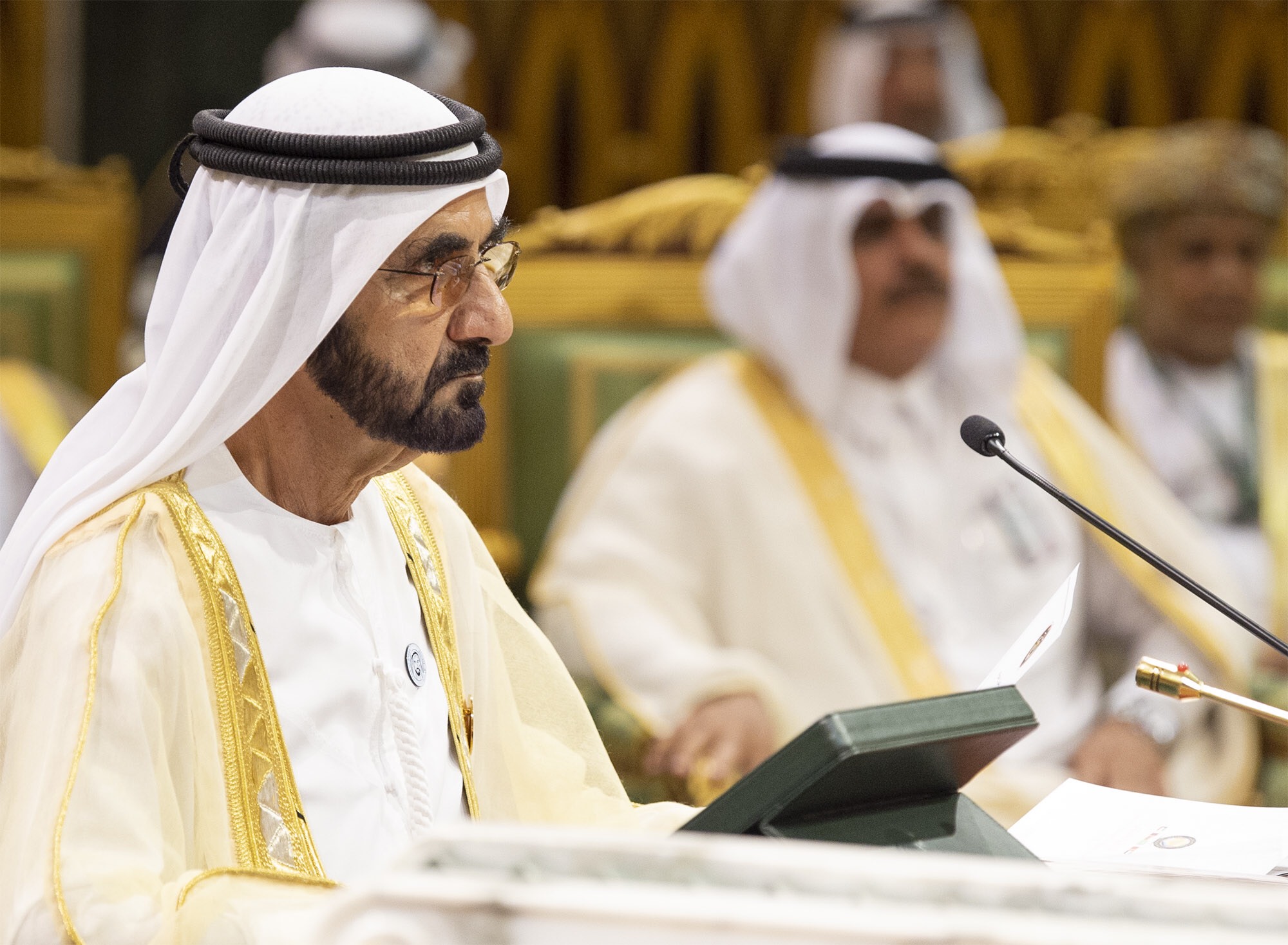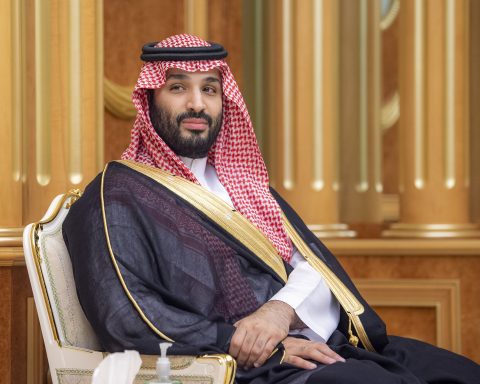On January 4, 2021, Riyadh and Doha agreed to reopen air, land, and sea borders after a blockade imposed by Saudi Arabia, the United Arab Emirates, Egypt, and Bahrain on Qatar, in 2017. With the announcement of the Saudi- Qatari reconciliation, a clear question has surfaced as to what effect the Gulf reconciliation has on the war in Yemen. Will this reconciliation have a positive impact on the war in Yemen, or will Yemen’s chaos and war increase and escalate? Will reconciliation push Saudi Arabia to change its policy in the war on Yemen? Is it possible for the Gulf reconciliation to change the rules of the game in this regard?
Opinions are divided on the impact of the Gulf reconciliation, on the situation in Yemen and the war in it. While some believe that Yemen has been affected negatively by the dispute between Qatar and the Gulf states, others say that this reconciliation could have a positive impact on the situation in Yemen. Another camp believes that the Gulf reconciliation will not have any impact on the war and situation in Yemen, at least in the short term.
However, everyone agrees that Yemen had lost a lot after it was involved in the dispute between Qatar and the Gulf states, as Qatar has been accused of supporting the Houthis.
Although there is a sense of optimism in the region, there are fears among many Yemenis that this reconciliation will not change their reality or put an end to their suffering. During the period of conflict between Riyadh and Doha, Yemen lived under pressure in various ways, which led to the emergence of different powers sponsored and backed by several parties sharing influence across the country, and the disintegration of the Arab alliance which became Saudi-Emirati only.
Yemen has witnessed further disintegration and many parties are contributing to it. The United Arab Emirates took advantage of this situation and expanded its influence even at the expense of Saudi Arabia. Additionally, the UAE was able to impose the presence of the Southern Transitional Council as a major party in the government, due to its massive support in the South. Today, Socotra, the west coast, and Aden are in the hands of UAE forces, and there is a sharing of influence in Hadramout between Riyadh and Abu Dhabi. Furthermore, while Riyadh has control over Al-Mahrah, the Houthi group continues to have control over most of the northern provinces.
However, there is no doubt that the Gulf crisis and the differences in the Gulf House have greatly affected the general situation in the region, and Yemen in particular. The outbreak of the Gulf crisis in 2017 and the subsequent withdrawal of Qatar from the military coalition, to restore legitimacy in Yemen through the Decisive Storm campaign, played a major role in the situation in Yemen. Qatar’s withdrawal from the coalition led to a state of disintegration in the alliance, as Saudi Arabia and the United Arab Emirates took over the administration of the alliance and took control of the Yemeni war. Qatar’s presence in the coalition had created a balance which was later lost after its exit from the coalition. The Qatari exit has had a negative impact on the situation in Yemen, especially after Qatar was held responsible for all the mistakes made by the coalition. Consequently, countries and people have been classified as either supporting or not supporting Qatar. For example, once Qatar was with Turkey, Ankara was included in the list of enemies of Saudi Arabia and the United Arab Emirates, and campaigns against Turkey became significantly hostile.
It is too early to predict the impact of the Gulf reconciliation on the Yemen war, but before we judge whether Saudi Arabia and Qatar will change their position on the war in Yemen, an important question must be asked: Is this reconciliation a part of a real settlement aimed at the interests of both countries? Or did it come under regional and international dictations? The answer to this question is important to understand how reconciliation affects Yemen and the war. If the reconciliation is a result of a real settlement aimed at the interests of both countries, Doha will regain its position within the Gulf and therefore this reconciliation will undoubtedly have a positive impact on the situation in Yemen. But if the reconciliation is a result of regional and international dictations, and if it is limited to restore the relationship between the two sides in terms of mobility and lifting the siege, this means that the situation in Yemen will not change and the reconciliation will not be able to provide a final solution to the Yemeni crisis.
Another question that has risen is: What pushed for reconciliation at this particular time? The answer lies in three points: firstly, the worsening of the Gulf crisis led the Qatari media, especially Al Jazeera, to focus mainly on the war in Yemen and particularly on the practices of Saudi Arabia and the United Arab Emirates in the Yemeni Civil War. This has contributed greatly to attracting the world’s attention to the Yemeni crisis and the consequent horrid humanitarian realities in the country. As a result, highlighting these violations has weakened the coalition and made it look like the occupier, which has greatly affected Saudi Arabia and the UAE. Secondly, reconciliation came at a time when Saudi Arabia needs to get out of the Yemeni deadlock, especially after it failed to end the war and the UAE began to dominate the scene in the country. Lastly: Biden’s inauguration as the President of the US has also played a big part. All these factors have prompted Saudi Arabia to seek a way out of the crisis at any cost, which would ease the media pressure on it, particularly made by Qatar.
Nevertheless, if the reconciliation is proven to be real, there are three files that the parties must work on to resolve the conflict in Yemen: the first file is the Al-Mahrah province, and Saudi control in the region. The second file is the relationship with the Houthis, while the third file is the influence of the United Arab Emirates in southern Yemen.
When Saudi Arabia expanded in Al Mahrah, it claimed that it aimed to stop the smuggling of arms to the Houthis which was supported by Qatar, according to Saudi and UAE claims. The UAE has also expanded into Yemen under the pretext of confronting Qatar and its alleged ambitions in Yemen. If reconciliation is real, Saudi Arabia and the UAE must work with Qatar to create a political initiative that will bring security and peace to Yemen and end its state of war. In this context, the question of: “How far can the UAE give up its influence in Yemen?” needs an answer. If the UAE refuses to give up its influence in Yemen, would that create a rift between Saudi Arabia and the UAE?
Riyadh needs to change its foreign policy concerning Yemen to bring stability to the country and the entire Gulf. Additionally, Riyadh, as a key regional player, must take full responsibility for what is happening in Yemen, and work to find a political combination through which it can find a peaceful solution that guarantees all the Yemenis that guarantees the Yemenis the ability to live in peace in their country. Also, it needs to find a solution that does not infuriate the UAE, which is also a key player to be reckoned with regarding Yemen. As for Qatar, Saudi Arabia should take Doha as a gateway for understanding between Saudi Arabia and the Houthis.
In the end, it is wise to wait before judging whether this reconciliation will be in Yemen’s interest or if it will not affect the situation. There is no doubt that the parties need to build bridges of trust that were demolished in 2017. Until the completion of the confidence-building phase, it is the responsibility of the Yemenis themselves to uphold the unity of their country, and that is the standard and base for any post-reconciliation agreement.













